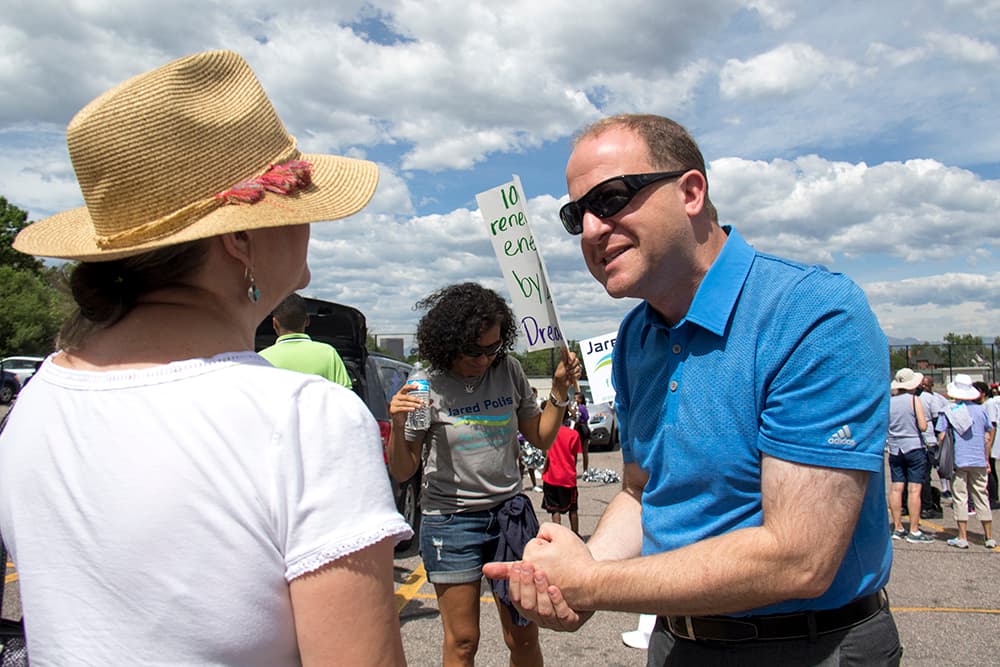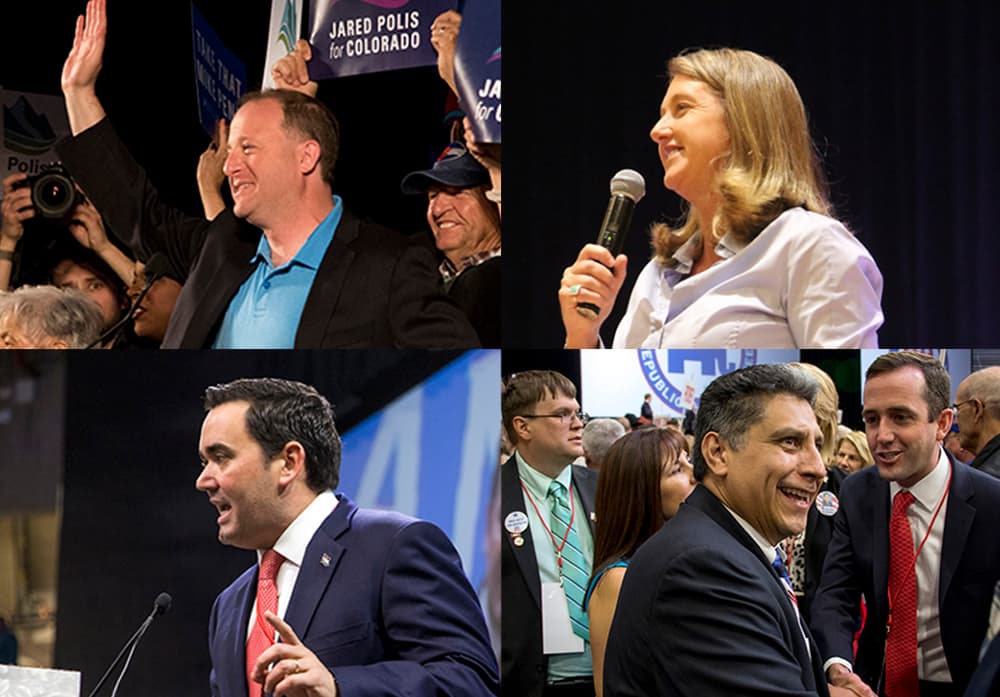
Update: Republican candidates debated Wednesday and will do so again Thursday.
Colorado voters will choose would-be successors to Democratic Gov. John Hickenlooper, who is limited after two terms, in the June 26 primary election. It's the first primary in which unaffiliated voters, the state's largest voting bloc, can participate in one or the other of the major party primaries, and state ballots are being mailed out Monday.
Here's a look at the top race. Colorado hasn't elected a Republican governor since Bill Owens, who served from 1999-2007.
Meet the Democrats:
Former state Treasurer Cary Kennedy has mounted a grassroots campaign touting credentials on education that lifted her to victories in the March caucuses and the state party assembly in April. Rivals Mike Johnston, a former state senator, and U.S. Rep. Jared Polis accused Kennedy of reneging on a clean-campaign pledge after a pro-Kennedy PAC ran an ad smearing their records on K-12 schools and higher education.
Kennedy garnered the support of the powerful Colorado Education Association teachers' union and has trumpeted her role in writing a constitutional amendment that was designed to increase public schools funding yearly.
Johnston, a former school principal and state senator, challenged Kennedy to disavow the ad in a recent debate. She declined to do so. With repeated mass shootings, he's also holding citizen forums to discuss gun policy — including "red flag" laws intended to temporarily remove weapons from those deemed a threat to themselves or others.
Polis is a five-term congressman, former state board of education member and self-made millionaire and philanthropist whose platform emphasizes publicly-funded preschool and kindergarten, forgiveness of college debt, single-payer health care and renewable energy. He, too, attacked Kennedy for the ad and cites his own education credentials, which include founding New America Schools in Colorado and New Mexico for immigrant young adults.
Lt. Gov. Donna Lynne casts herself as a nonpartisan manager and problem-solver, citing her extensive leadership experience in health care and as Hickenlooper's "chief operating officer." Lynne has focused on another major issue for Democrats: Protecting President Barack Obama's health care law while seeking ways to lower health care costs and expand coverage.
Meet the Republicans:
State Treasurer Walker Stapleton heads a field that collectively vows to defend any Democratic attempt to tamper with Colorado's constitutional Taxpayer's Bill of Rights, which leaves it to voters to approve tax hikes. All vow to fight any Democratic move toward a single-payer health system.
Despite prodigious fundraising, Stapleton stumbled his way into the primary after citing possible fraud by a contractor who gathered petitions on his behalf. He has recently aligned himself with President Donald Trump on immigration and other issues, but faces rivals' questions over his participation in a bid by lawmakers to rescue Colorado's state employee pension plan.
Doug Robinson is a first-time candidate who casts himself as a pragmatic conservative and, like his competitors, vows to protect gun rights. He stops short of calling for radical changes to Medicaid expansion or the Obama health care law.
Businessman Victor Mitchell, a former state representative, invested significantly in his own campaign and stresses his financial background. Mitchell's ads have emphasized he'll stop Colorado from becoming another California, stressing the state's rapid population growth and roads congestion.
Greg Lopez is a former Parker mayor who served as area director of the U.S. Small Business Administration. Lopez made the primary by challenging Republicans to embrace and enroll Hispanic voters. He shares the Trump administration's antipathy toward so-called "sanctuary cities."
The state's unaffiliated voters are a major factor.
State voters in 2016 approved changes that allow Colorado's unaffiliated voters to cast ballots in either the Democratic or Republican primary without affiliating. The state's 1.2 million active unaffiliated voters represent Colorado's biggest voting bloc, and could previously vote in primaries only by registering with a party.
The state's two major parties have about 1 million active voters each.
This year, most unaffiliated voters will receive two primary ballots — one for Democrats, one for Republicans. They can choose one; returning both will cancel their vote.
The impact is uncertain, and Colorado's primaries in 2014, the last non-presidential election year, didn't feature gubernatorial contests. Primary turnout that year was nearly 22 percent of active voters.














